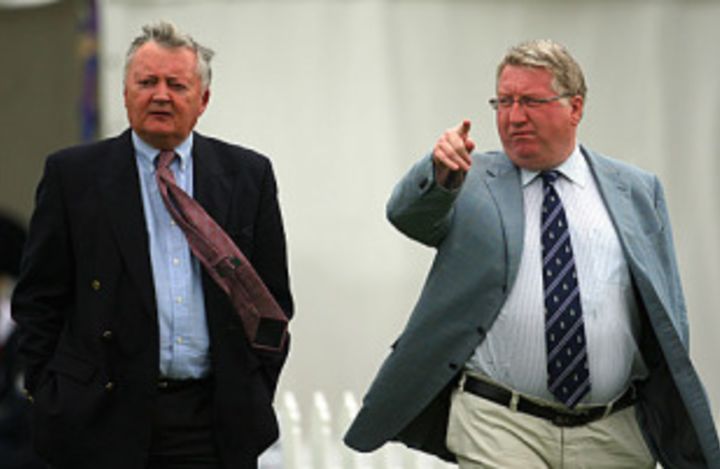ECB adopts Super Over for NatWest T20
England's revamped domestic Twenty20 competition will adopt the Super Over to settle tied matches throughout the tournament in a package of changes intended to make the tournament more appealing for spectators.

England's revamped domestic Twenty20 competition will adopt the Super Over to settle tied matches throughout the tournament in a package of changes intended to make the tournament more appealing for spectators.
The NatWest T20 will also include coloured crease markings, with the intention of making them easier to see for spectators, and a shorter cut-off time of 60 seconds for a new batsman to reach the crease, reduced from 90 seconds in previous seasons.
This will be the first time a Super Over has been used in the group stages of England's T20 competition and reflects the growing adoption of the American-influenced antipathy to drawn or tied matches.
But the ECB has resisted a number of changes floated by a sub-committee, under the chairmanship of the Essex chairman Nigel Hilliard, which was drawn up specifically to look into how to re-energise T20 when it is restructured next season as a summer-long competition played predominantly on Friday nights
Among the suggestions rejected by the ECB cricket committee, and now supported by the full Board, were a 'Joker' Over where runs would count double, a free hit for all no-balls rather than just front foot and a reduction in the minimum size of boundaries.
David Collier, the ECB's chief executive, said: "These changes are designed to make our domestic game even more spectator and viewer-friendly as well as bring the county game into line with rule changes which have been successfully implemented at international level by the ICC. They will come into force along with the new county schedule next season and are the product of extensive consultation and discussion with all our key stakeholders in the domestic game."
If the draw is frowned upon in T20, it has gained in importance in Championship cricket - a psychological necessity perhaps for the ECB as it follows up the adoption of a Super Over by restating that some traditions will be protected: draws in the Championship will be worth five points next season, a rise from three. Wins, 16 points, and bonus points, a maximum of eight, remain unchanged.
The Royal London One-Day Cup will "replicate ODI playing conditions wherever possible," which entails that two new balls will be used. With India sounding increasingly unconvinced by the policy, it is not beyond possibility that the ECB will find itself revisiting the decision sooner rather than later.
Students of regulations on the heavy roller will also be excited by another shift. The heavy roller was banned in Championship cricket between 2010-2012, so ending a reliance on Law 10 in the MCC Laws which basically allows seven minutes' rolling - heavy or otherwise - at the behest of the batting captain before the start of each innings.
Heavy rolling was reintroduced in 2013 in the belief that county squares were becoming too uneven, and that pitches were not breaking up for the spinners, but the reaction was mixed: some county squares seemed to benefit and others becoming increasingly moribund.
For the 2014 season therefore, the decision on what weight of roller should be available will be made before the start of the match by the home county. This is intended to empower groundstaff who have more knowledge of their own squares to produce good pitches, although the risk is that home advantage could in future be deemed too great, with counties now able to prepare a pitch to suit their circumstances and decide what roller to use on it.
David Hopps is the UK editor of ESPNcricinfo
Read in App
Elevate your reading experience on ESPNcricinfo App.